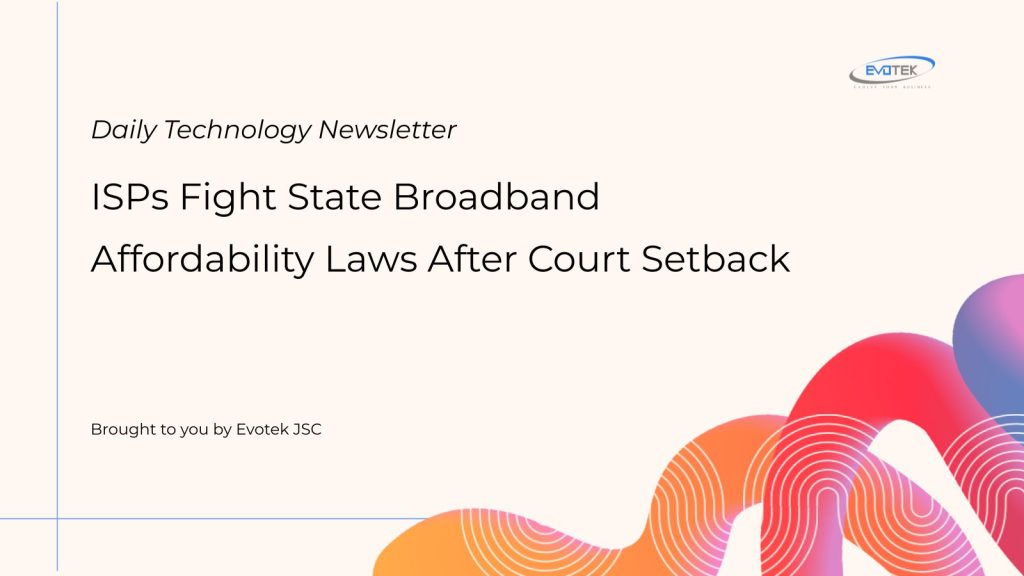Following a Supreme Court defeat, major Internet Service Providers (ISPs) are now appealing to the Trump administration to block state laws mandating affordable broadband plans for low-income residents.
Broadband Lobby Seeks Federal Intervention
Leading cable, telecom, and mobile industry lobby groups have formally requested the Justice Department to challenge state regulations, particularly those requiring ISPs to offer low-cost internet options.
The core of their argument lies in the belief that states like New York, which mandates $15-$20 monthly broadband plans for eligible low-income individuals, are overstepping their boundaries.
Justice Department Petitioned to Sue States
In a filing, these lobby groups urged the Justice Department’s Antitrust Division to consider “affirmative preemption litigation” against states enacting such laws, claiming they directly regulate broadband rates.
The filing also suggested collaboration between the Justice Department and the Federal Communications Commission (FCC) to explore all possible federal regulatory actions to preempt what they term “harmful state regulations.” The submission was made by prominent industry associations, including CTIA-The Wireless Association, NCTA-The Internet & Television Association, and USTelecom-The Broadband Association.
Task Force Target: Anticompetitive Regulations
The request was submitted to the Justice Department’s Anticompetitive Regulations Task Force, established to eliminate state and federal laws that undermine free market competition.
However, a Justice Department lawsuit isn’t a guaranteed victory for ISPs, having already lost a legal battle against New York’s affordability mandate, a decision upheld by the Supreme Court’s refusal to hear their challenge.
Potential Wave of State Laws Alarms ISPs
New York’s law requires ISPs with over 20,000 customers to offer $15 broadband (25Mbps download) or $20 broadband (200Mbps download) plans. ISPs fear a domino effect, with other states adopting similar requirements.
California is considering a bill requiring $15 plans with 100Mbps download and 20Mbps upload speeds. Concerns extend to proposed regulations in Connecticut, Hawaii, Maine, Maryland, Massachusetts, Minnesota, Pennsylvania, Rhode Island, Vermont, and West Virginia.
Some state bills encompass net neutrality requirements or classify ISPs as utilities, broadening the regulatory scope beyond pricing.
The Preemption Dream: A Difficult Path
The broadband industry has long sought to preempt state laws while avoiding stringent federal regulation. A previous attempt by the FCC to preempt state net neutrality laws failed in court.
ISPs argue that state mandates are preempted by the FCC’s deregulation of broadband, a claim rejected by courts which have ruled that the FCC cannot preempt state laws in areas where it lacks regulatory authority.
Same Argument, Different Day?
ISPs continue to pursue preemption arguments, hoping for a favorable court ruling. They remind the Justice Department of a previous preemption suit against California’s net neutrality law, which was dropped after a change in administration.
They argue current state legislation is more intrusive than California’s net neutrality law.
No Specific Preemption Law Exists
Without existing laws to support preemption, ISPs’ best hope lies in Congress enacting a nationwide preemption law.
They claim states defy the Telecommunications Act of 1996, which promotes a “vibrant and competitive free market” for the Internet. However, they lack a specific law to preempt the New York mandate or similar proposals.
Industry Seeks Support, Even Without Lawsuits
Even if the Justice Department doesn’t sue, ISPs want support for industry-led lawsuits, requesting the Department to file amicus briefs or statements of interest.
They emphasize the need to uphold Congress’ intent for a lightly regulated Internet, allowing it to flourish for all Americans.

 日本語
日本語 한국어
한국어 Tiếng Việt
Tiếng Việt 简体中文
简体中文